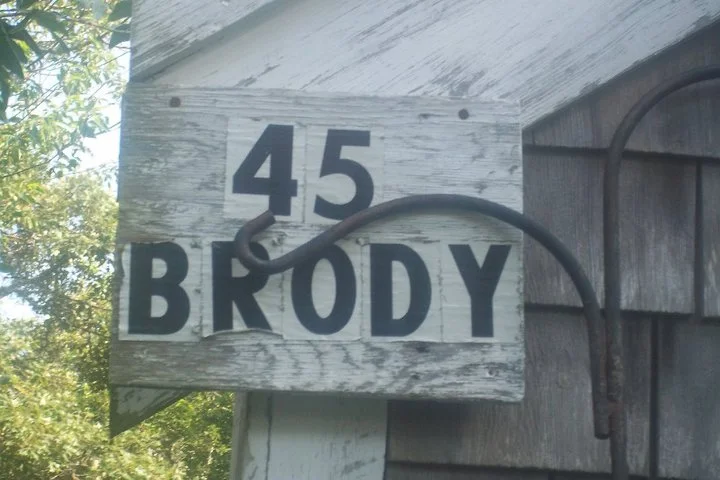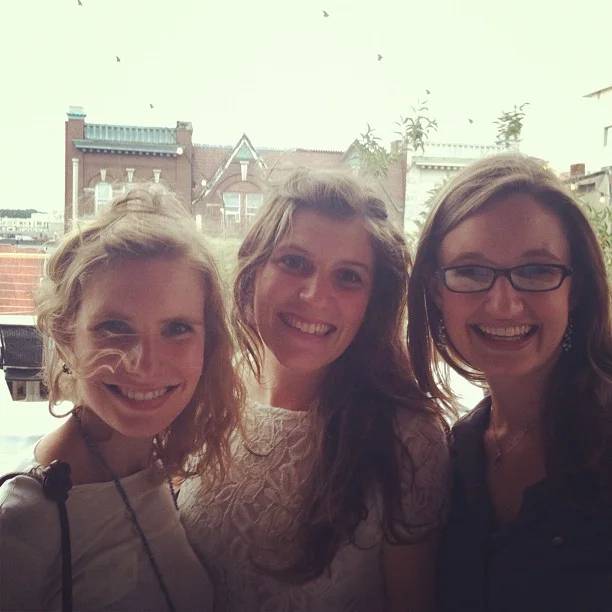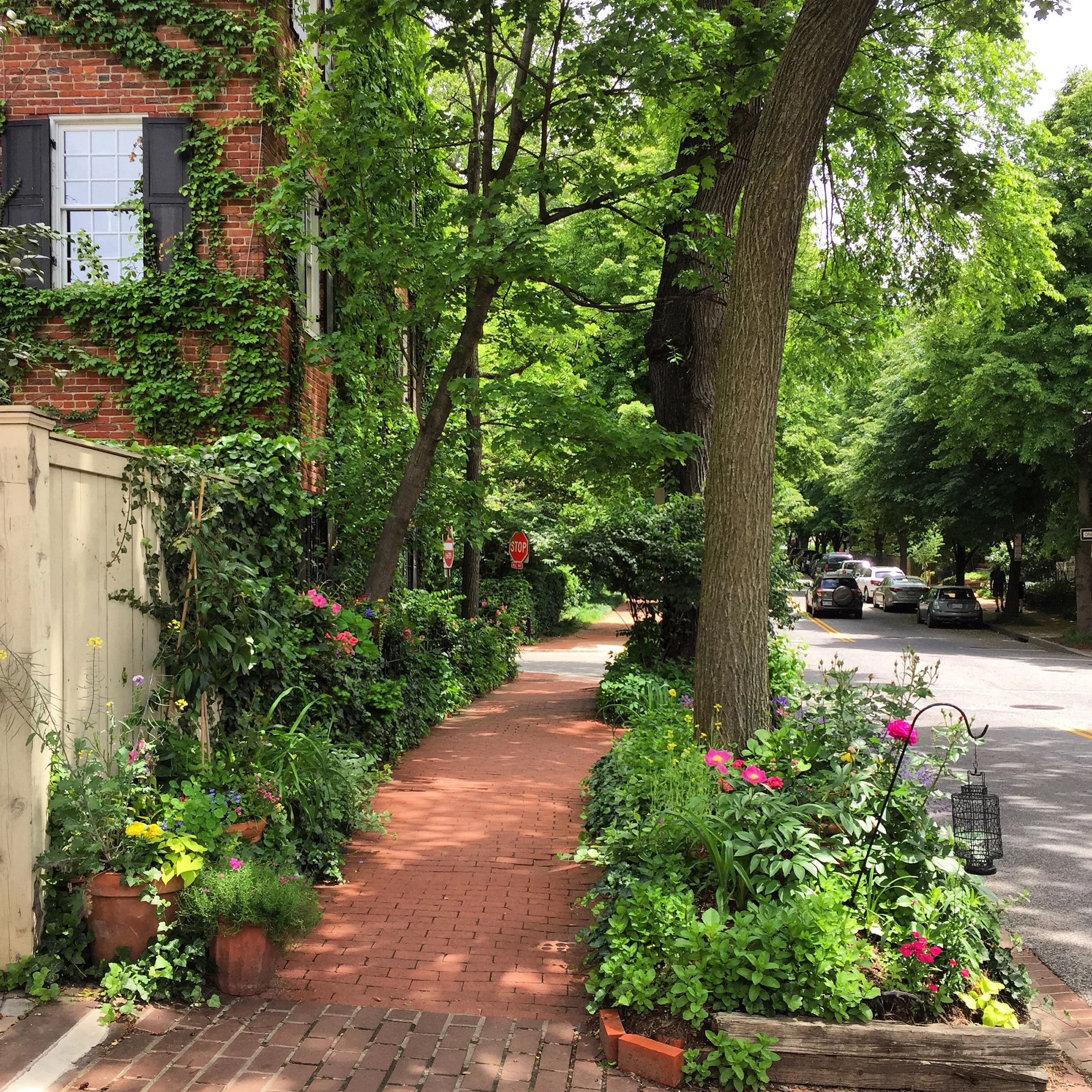Family History - Old Fashioned Poppy Seed Cookies
Family History
My maternal grandmother wasn’t the greatest of cooks. I have memories of watery, under seasoned soups for dinner and brick hard Jewish Mandelbrot for dessert. I vividly recall going up to Cape Cod one year in high school with my best friend. We came back from the bay near my Grandma's summer house around 4 p.m., hot, sandy and wiped.
Campground beach, near Huckleberry Lane
My grandma was sitting there with three steaming bowls of bean and barley soup. "Ready for supper?" She eagerly asked. For me, that image defines her in the kitchen. She had many talents; however, cooking was not one of them. To her credit, in the Cape she made spectacular beach plum jelly from berries on our unpaved road.
My Grandmother's house in Cape Cod, on Huckleberry Lane
Along with Mandelbrot and hard cut-out sugar cookies burnt on the edges for Hannukah, she also made dense poppy seed cookies. A recipe passed down from my grandfather's mother. My mom's Grandma Brody. The cookies are Polish in origin, since both my grandparents were second generation Polish. To understand my introduction to cooking and even religion, you must to understand my grandmother's mother: Anna.
My great grandmother, Anna Hudesman, was well ahead of her time. At age six, Anna recalled sneaking out of her house to escape to the cornflower fields to devise a plan to escape strict Orthodox Jewish traditions. She felt oppressed in the poverty-stricken village outside Warsaw, and yearned to gain an education. At the time, the government enforced limitations for people leaving the country. Regardless, Anna worked in a bow tie factory under terrible conditions to earn money for her escape. At age 18, Anna immigrated to New York City. She found work in the garment industry and later became a union leader. Years after she passed, my grandmother independently published Fourscore and Five, a collection of her mother’s poems, reflections, and vignettes.
Anna was the sixth of 11 children, but unlike her siblings, she could not endure the lack of opportunity. “I felt like a bird in a cage,” she wrote, “intent on getting free.” She continued, “it took courage just to exist.” The Hudesman family moved to Warsaw after the turn of the century, when Anna was 11, to find more work. The move simultaneously conflicted with severe restrictions, and Anna remembered having to hide when casually meeting Jewish relatives. The country seemed “useless and hopeless,” she wrote, while in America, “the opportunity would be infinitely greater.” Alone, she took a boat to New York City on New Year’s Eve, 1912. She prized education above all else and immediately learned English to become was she considered a “useful American.”
My youngest sister's Bat Mitzvah
Traces of Anna’s determination trickled down. The merit of education was very much imparted on my Grandma who pursued a PhD at the University of Chicago in the 1940s when it was unpopular for women to do so. My grandma was strong willed and strongly opinionated. Although both my parents were raised Jewish, it was the family-oriented traditions that resonated. My mom always said the holidays were a way to bring family together. We observed most holidays, but in a reformed manner. We'd make recipes that invoked nostalgia, rather than their religious meaning. Matzo Brei on the morning after Passover and Noodle Kugel around Rosh Hashana. We would also make poppy seed cookies, since my grandma attempted to emulate her mother-in-law's recipe. My mom keeps a recipe scribbled on a piece of paper. The cookies are so simple, and yet my mother's fluffy, buttery cookie were not my grandmother's denser version. Both renditions were so much a part of my childhood. We would make them on snow days, on Jewish holidays, and just because. I was set on learning my mother's version.
My youngest sister submitted the recipe for her elecmentary school family recipe book
As traits and values are passed down, as are recipes. They may be changed or altered slightly, but the meaning is still ever-present. I learned very few baking tips from my mother, as she identified as a cook not a baker. Thus, I incorporated self-taught baking techniques. I chilled the cookies before I baked them. Chilling the dough can enhance the flavors of the cookie and allows the flour to soak up the liquid evenly. Additionally, creaming the butter and the sugar provides baked goods with structure, since beating air into the butter helps the baked goods rise.
Stories and memories provide insight into the past. Recipes, poems, vignettes. I have always valued firsthand accounts. Puzzles you can piece together. Anna's early writings provide a window to help understand her. Understand my grandma. Understand why her poppy seed cookies were burnt or hard. She was rarely in the kitchen. As with most things, my mom put in a bit more effort into her poppy seed cookies, and you could taste it.
These are my childhood cookies. My late night cookies with a cup of tea. Playing cards, munching cookies. Snow day cookies. Hannukah cookies. Anytime cookies. In sum, my childhood cookies. When baked with a bit of finesse, they are pure comfort. I'd argue you don't need to be an adept baker to pull them off, but somehow my grandma proved me wrong.
Old Fashioned Poppy Seed Cookies
Serves: 24
Ingredients
1 egg
1 stick of butter, room temperature
1 tsp. vanilla
1 cup white sugar, plus more for stamping
2 ¼ cup all-purpose flour, plus more for stamping
2 tsp. baking powder
1/8 tsp salt
½ cup water
3 tbsp. poppy seeds
Method
Preheat oven to 350 degrees
Butter two large baking sheets
Beat in the butter and sugar
Add whisked egg then vanilla
In a separate bowl, whisk flour, baking powder, salt, and poppy seeds
Carefully combine wet ingredients into dry ingredients, without over mixing
Using a tablespoon, drop cookies onto prepared baking sheet · In a small bowl, combine a little flour and sugar
Gently flatten each cookies with the bottom of a cup that has been dipped in a mixture of flour and sugar, mostly sugar
Bake until golden brown











